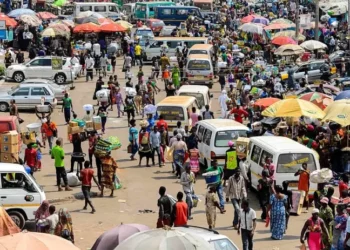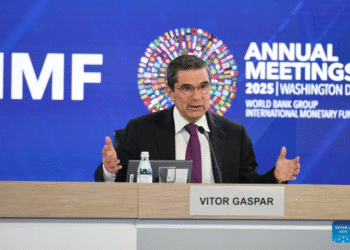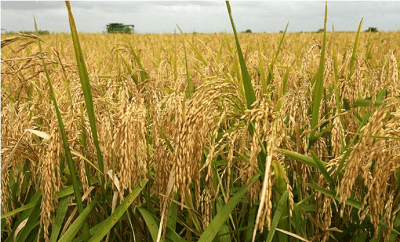Ghana’s inflationary pressures have shown signs of easing in recent months.
The country’s headline inflation dropped to 22.40% in March 2025, from 23.10% in February, marking the third consecutive monthly decline.
Month-on-month inflation also slowed sharply to 0.2% in March, down from 1.3% in the previous month. According to the Ghana Statistical Service (GSS), these declines are largely attributed to a relatively stable Cedi and better food supply conditions.
However, despite this downward trend, many Ghanaians are yet to feel relief in market prices. The cost of essential goods and services remains high, keeping household budgets under pressure. Experts warn that this disconnect between inflation data and real market prices could be a sign of deeper structural issues in the economy.
Deloitte Sounds the Alarm on Imported Inflation
While the short-term inflation trend appears positive, Deloitte West Africa has issued a warning: Ghana’s disinflation progress may be undermined by rising imported costs due to global economic developments. According to Deloitte, the ripple effects of new U.S. tariffs, global supply chain disruptions, and broader geopolitical tensions are expected to drive global inflation higher.
“New US tariffs will spur imported inflation and increase local consumer prices, reigniting inflationary pressure,” Deloitte noted in its latest economic outlook. For an import-reliant economy like Ghana, this means that global inflationary trends could be transmitted directly into the domestic market through higher costs for goods, machinery, fuel, and raw materials.
Meanwhile, one of the key factors that has supported Ghana’s recent inflation moderation is the relative stability of the Ghanaian Cedi. A stable exchange rate helps reduce the cost of imports and anchors inflation expectations. However, as global prices rise and imported inflation intensifies, the pressure on the Cedi could increase.
Should the Cedi weaken in the face of stronger forex demand or capital outflows, this would amplify inflationary risks, particularly through higher import costs. Deloitte’s forecast indicates that Ghana cannot rely solely on currency stability to shield itself from external shocks.
Fuel Prices Drop, but Broader Inflation Risks Remain
The decline in global crude oil prices has provided temporary relief by lowering fuel prices in both Ghana and Nigeria. This development is expected to ease transport costs and reduce some input prices for businesses. However, this benefit may be limited in offsetting the broader impact of imported inflation, especially for non-fuel imports like food and manufactured goods.
With global trade volatility on the rise, the risk is that even falling fuel prices may not be enough to maintain the disinflation momentum if other cost pressures take hold.
Ghana’s central bank has maintained a tight monetary stance to bring inflation under control. While the easing trend could open the door to a potential interest rate cut, Deloitte advises caution. Premature easing of monetary policy could destabilize inflation expectations if the external environment worsens.
Policymakers are therefore urged to remain vigilant, keeping interest rates high enough to guard against imported inflation while also supporting a stable Cedi.
Market Price Transmission
One of the more concerning observations by both Deloitte and local economists is that the current disinflation has not yet translated into lower consumer prices on the ground. This suggests inefficiencies in how market prices respond to macroeconomic indicators. Middlemen, price rigidity, and limited competition in key sectors could be contributing to this phenomenon.
Until these structural bottlenecks are addressed, any gains in inflation data may remain invisible to the average Ghanaian consumer.
Ghana’s disinflation trend is a welcome development but remains fragile and exposed to external shocks. The rise in imported costs—especially from global supply chain disruptions and new tariffs—threatens to reverse progress and reignite inflationary pressures.
Going forward, Ghana must adopt a coordinated policy response, focusing on stabilizing the Cedi, improving supply chain resilience, and boosting domestic production. Only then can the country transform its short-term inflation relief into sustainable price stability that benefits businesses and consumers alike.
READ ALSO: Government, ARB Apex Bank Sign $1m Agriculture Fund Deal






















